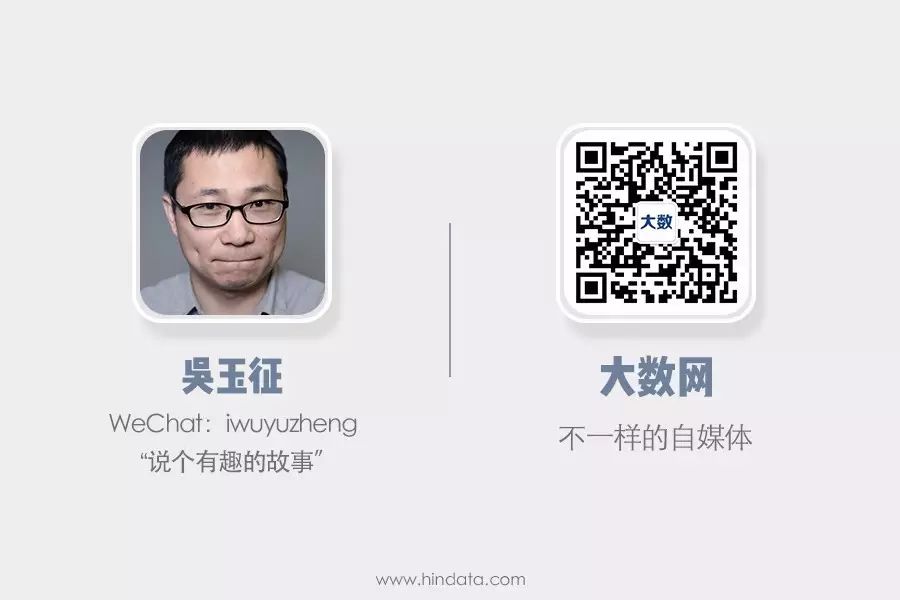This month, Berlin, Germany, hosted the first large-scale Edge Computing Forum in history, with hundreds of European manufacturers, research institutions, industry organizations, and standard organizations participating. The lineup for this forum was unprecedentedly luxurious, encompassing the entire ecosystem of the industry, dedicated to establishing a core framework for edge computing technology and effectively promoting its implementation.
Edge computing has been promoted for several years, but there are still many issues that require collective efforts from the entire industry, such as understanding what this concept is, how to implement it, how to unify standards, and how to commercialize and promote it.
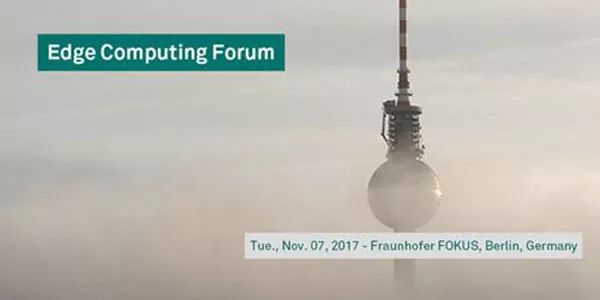
In this context, the ECF (Edge Computing Forum) held in Europe is highly representative, marking not only the first anniversary of the establishment of the Edge Computing Consortium (ECC) but also a key event focused on Europe with a global perspective.
Why did this forum attract so much attention?
The Achievements of One Year Are Countless
Before discussing the ECF, let’s introduce the background of the ECC (Edge Computing Consortium), which is the largest edge computing alliance in the world.
This organization was initiated last November by Huawei Technologies Co., Ltd., the Shenyang Institute of Automation of the Chinese Academy of Sciences, the China Academy of Information and Communications Technology, Intel Corporation, ARM, and Inspur Information Technology Group Co., Ltd., aiming to unite various industrial resources from government, industry, academia, research, and application to lead the healthy and sustainable development of the edge computing industry.
As of the end of October, the number of ECC members has exceeded 130, with the governing units including not only these six founding members but also Honeywell, Siasun Robot & Automation Co., Ltd., NI, and other internationally renowned manufacturers totaling 20. This includes not only traditional ICT chip, equipment, security, and network manufacturers but also leading enterprises from traditional industries and information service providers from various sectors.
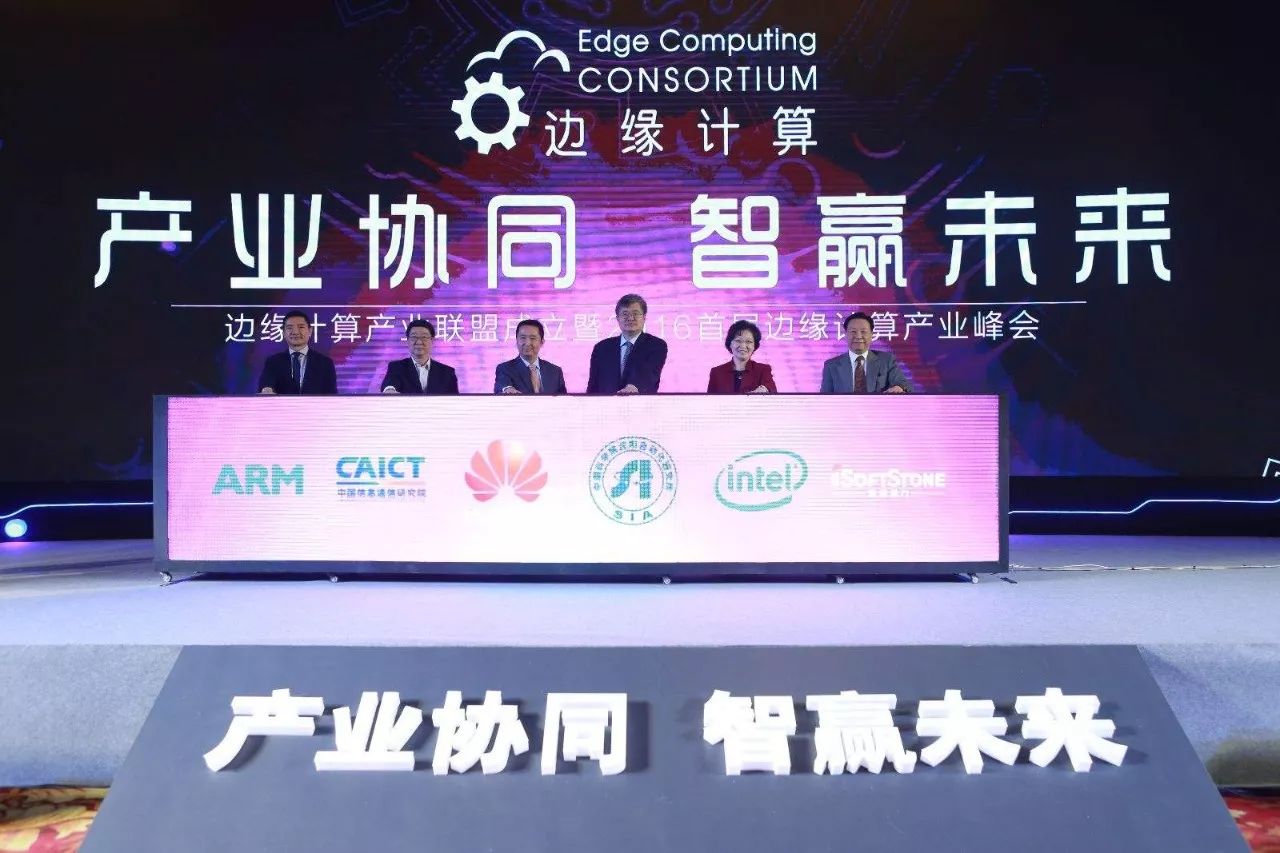
ECC Inauguration Ceremony
Although it has not been a year since its establishment, the development of the ECC has achieved remarkable results, which can be summarized in several dimensions. First, it has established cooperative relationships with various industry standard organizations, such as IIC/AII/SDNFV/LNI4.0, and has officially participated in the edge computing-related work of several standard organizations, including IEEE/IEC/IETF. Second, it has established industry committees, currently covering three major industries: smart streetlights, smart vehicles, and edge monitoring, with successful case implementations. Third, it has completed the application, review, and execution work for the first batch of 11 testbeds.
It can be said that in the past year since its establishment, the ECC has achieved remarkable results. In summary, it has formed extensive alliances, prioritized standards, built frameworks, and synchronized joint development, commercial technology verification, and promotion, gradually pushing edge computing into a substantial phase.
Collaborating with Europe to Release Latest Achievements
With this background, the significance of the ECF lies in widely disseminating the concepts of the edge computing alliance in Europe, collaboratively discussing technologies and frameworks, and jointly promoting the implementation of edge computing across the industry.
The 2017 ECF was co-hosted by Huawei and Fraunhofer (FOKUS), the largest application science research institution in Europe, inviting numerous industry partners and customers to participate in this grand event. Fraunhofer (FOKUS) is the largest research institution in Germany and Europe, with a total of 69 research institutes distributed throughout Germany and over 20,000 researchers.
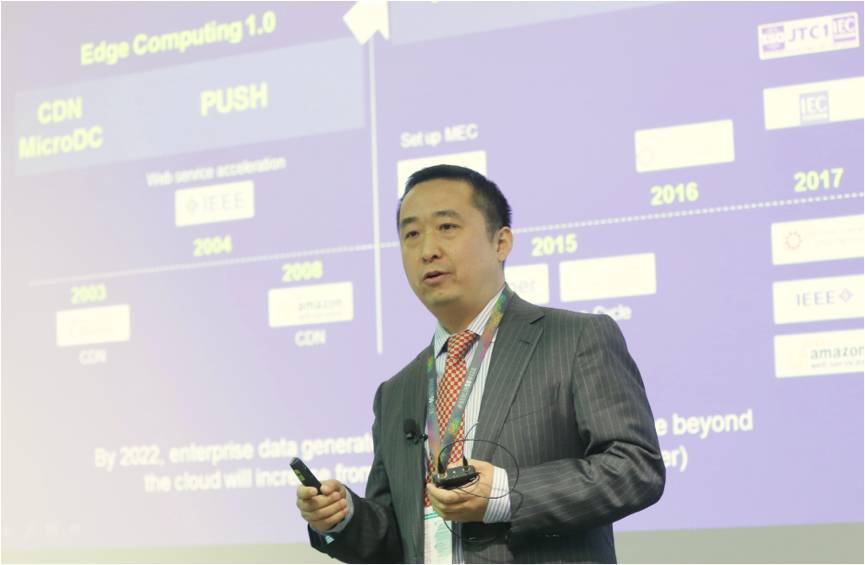
Liu Shaowei, President of Huawei’s Network R&D Department and Vice Chairman of the Edge Computing Alliance, discusses the development of edge computing
During the meeting, Liu Shaowei, President of Huawei’s Network R&D Department (also Vice Chairman of the Edge Computing Alliance), delivered a keynote speech. He introduced the development of edge computing from a broader trend, stating: “Through the distributed intelligent development at the edge and the comprehensive collaboration with cloud computing in connection, application, business, network, and security, we will gradually achieve automation, adaptability, and autonomy of edge computing on the path to intelligence, ultimately driving the digital transformation of the entire industry.”
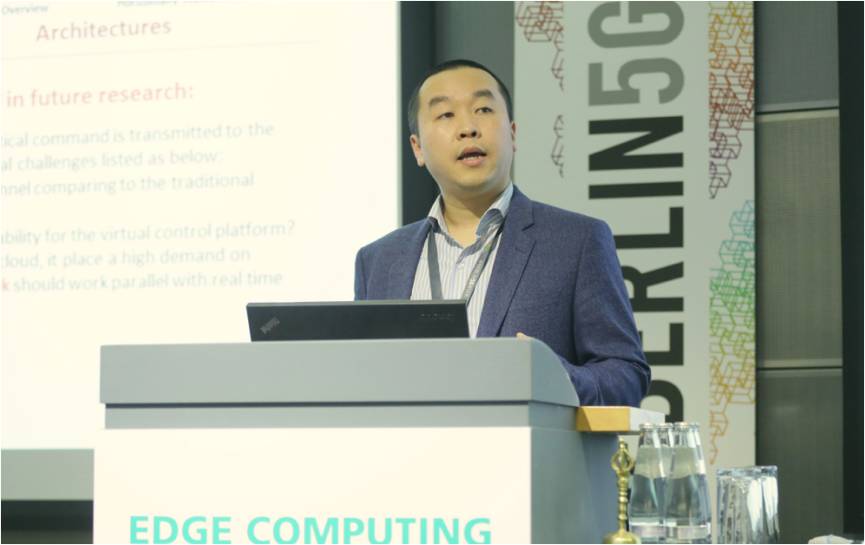
Huawei’s Chief Network Technology Expert, Lou Zhe, delivers a keynote speech
Lou Zhe, Huawei’s Chief Network Technology Expert (also Co-Chair of the IIC Network Task Group), further elaborated on the technical aspects in his speech. He pointed out: “Reliable, interoperable, and secure communication is the foundation of Industry 4.0. Dynamically configurable and cloud-based control services can further simplify the difficulty of using industrial networks and promote the continuous development of industrial network technology and industry.”
After listening to the experts’ speeches, you might be curious about the latest achievements released at this forum. Indeed, this forum unveiled a wealth of new results, the most exciting of which is the implementation of an intelligent testbed based on practical industrial production environments—this is an edge intelligent testbed based on TSN (Time-Sensitive Networking) technology. In academic terms, it supports precise collaboration of devices from different manufacturers with 50 hops, achieving a delay of less than 10 microseconds and jitter of less than 1 microsecond on a single hop, while providing a visualized PLC (Programmable Logic Controller) through container technology on the edge side, supporting the operation of virtualized PLCs from different manufacturers.
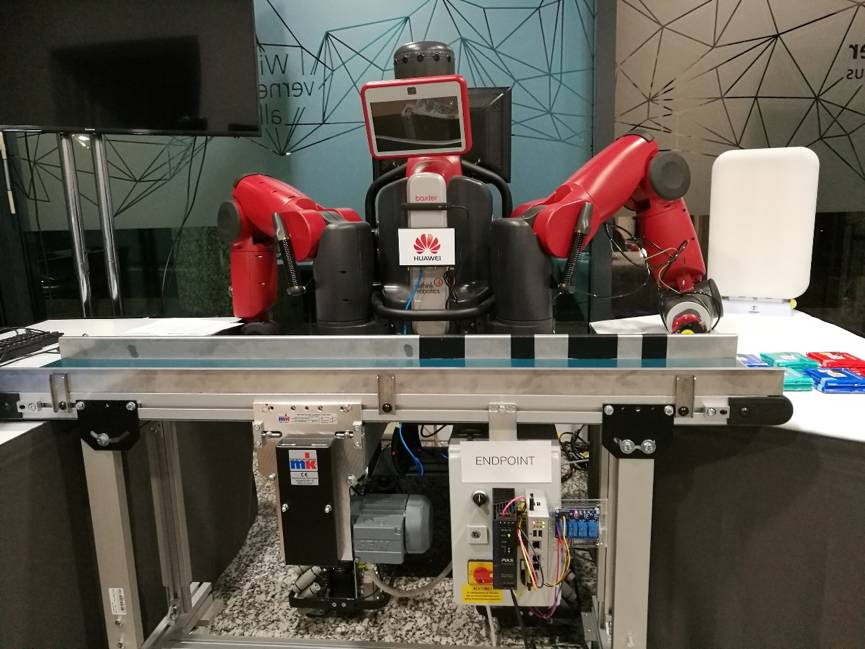
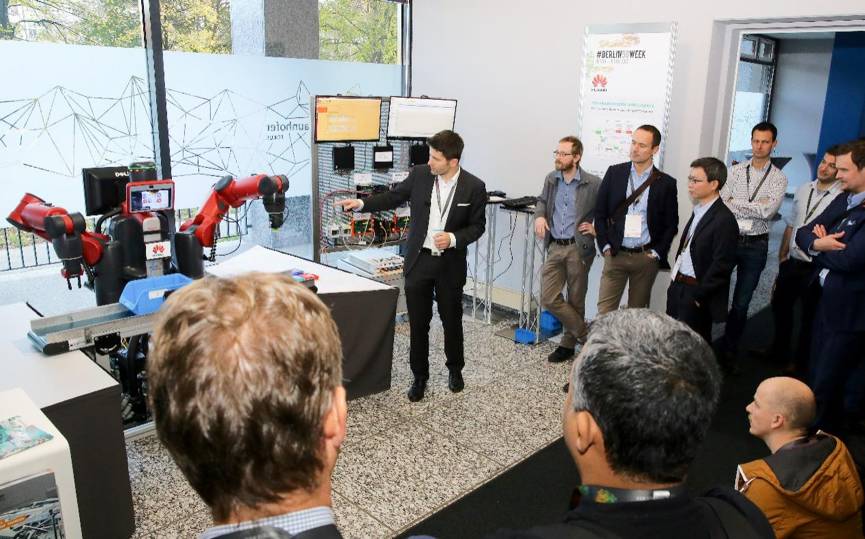
Live demonstration of the edge intelligent testbed
Building an Ecosystem Based on Technology
From the establishment of the ECC to the holding of the ECF, it can be seen that the ecosystem is the only way to grow; only an ecosystem can gather the strength of the entire industry chain from government, industry, academia, research, and application step by step.
Edge computing is primarily a trend driven by technology, which will profoundly change the industrial landscape over the next 20 years. This technology cannot be implemented by a single entity; it involves data processing, security, network transmission, cloud, and various industries (such as manufacturing, automotive, smart streetlights, asset management, smart grids, consumer IoT, entertainment, transportation) with numerous devices and instruments, as well as different standards within the industry (the most common being various sensor standards and closed standards within the industry), all of which require collaboration and mutual benefit among the entire industry chain.
Therefore, since its establishment, the ECC has adhered to the approach of developing edge computing through ecosystem building. Among the more than 130 member units today, it covers various aspects of the entire industrial chain across different industries. For example, the 11 testbeds being developed by the ECC are based on specific commercial issues, determined through collaboration among Huawei, research institutions, industry manufacturers, and integrators, with clear division of labor among partner members, fully leveraging their respective advantages, and completing product integration and interoperability testing, thereby achieving commercial success.
Alliance units represented by Huawei are actively promoting the vigorous development of the edge computing industry in Europe. It is reported that Huawei has previously established partnerships with well-known European manufacturers such as Bosch, Schindler, Schneider, and Phoenix, including the well-known elevator IoT project with Schindler and the smart streetlight project in the Czech Republic. With the help of this summit, Huawei is expanding deeper and broader collaborations in the edge computing industry with more European manufacturers.
It is evident that the ECC alliance is playing an important role internationally, fundamentally because it has seized the major trends of Industry 4.0 in Germany and China’s Manufacturing 2025, building an international collaborative platform for industry, academia, and research, continuously thriving the ecosystem, and inviting research institutions, industry organizations, and manufacturers from various industrial fields to join in promoting the vigorous development of edge computing. With such positioning and execution capabilities, along with a thriving ecosystem, it is believed that the ECC will soon achieve more accomplishments in different countries and regions, effectively assisting the digital transformation of the industry.
Additionally, it has been revealed that after the ECF in Europe, the ECC will hold a summit in China at the end of November, which will bring more industry cases, such as smart manufacturing and smart water management, further deepening the implementation of edge computing in China and globally.
